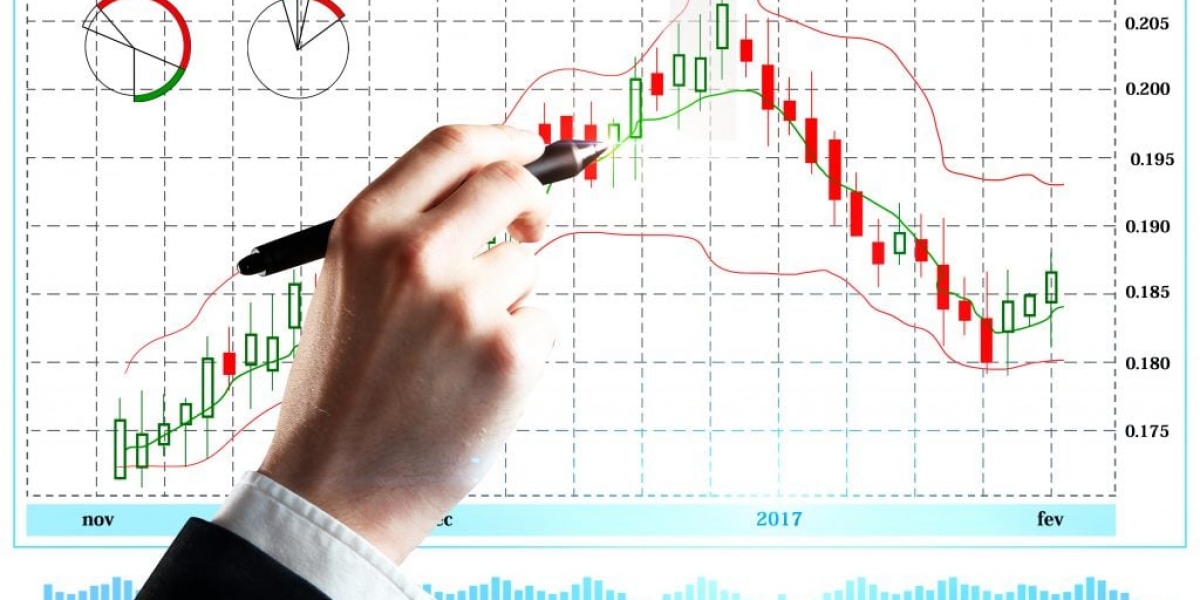Economic data plays a crucial role in the forex market, influencing currency prices and trader decisions. Forex traders constantly analyze economic indicators, such as GDP, employment figures, inflation rates, and consumer spending, to gauge the health of an economy and predict future currency movements. In this article, we’ll discuss some of the most important economic data releases and how they affect forex trading.
Understanding Economic Indicators
Economic indicators are reports or statistics that provide insight into the state of a country's economy. These indicators are often released by government agencies, central banks, or independent organizations and are typically scheduled for release at specific times. The data helps traders assess the overall economic performance and determine whether a currency is likely to strengthen or weaken in the near future.
Some of the key economic indicators include Gross Domestic Product (GDP), inflation, employment figures, interest rates, and trade balances. Each of these data points provides valuable insights into the economic outlook of a country, influencing both short-term and long-term forex market movements.
Gross Domestic Product (GDP) and Its Influence
Gross Domestic Product (GDP) is one of the most widely watched economic indicators. It represents the total value of goods and services produced by a country within a specific period, typically a quarter or a year. GDP growth signals economic expansion, while a decrease in GDP growth may indicate a slowing economy.
Impact on Forex Trading: A strong GDP report can boost investor confidence in a country’s economy, leading to a rise in the value of its currency. On the other hand, a negative GDP report may lead to a weaker currency, as traders may anticipate slower economic growth and reduced returns on investments.
Inflation and Its Effect on Currency Value
Inflation refers to the rate at which the prices of goods and services rise over time. It is a key measure of the purchasing power of a currency. Central banks, like the U.S. Federal Reserve and the European Central Bank, closely monitor inflation because it can influence their monetary policy decisions, such as interest rate changes.
Impact on Forex Trading: High inflation may weaken a currency as it erodes its purchasing power. However, moderate inflation is often seen as a sign of a healthy economy. If inflation rises too quickly, central banks may raise interest rates to cool down the economy, which can strengthen the currency. Conversely, low inflation may prompt central banks to lower interest rates, which can lead to currency depreciation.
Unemployment Rates and Labor Market Data
Unemployment figures, such as the unemployment rate and non-farm payrolls (for the U.S.), are critical data points for traders to consider. These reports measure the number of people who are actively seeking employment and provide insights into the strength of the labor market.
Impact on Forex Trading: A low unemployment rate indicates a strong labor market and economic health, which can positively affect a country's currency. High unemployment, on the other hand, can signal economic troubles, leading to currency depreciation as investors pull out of the country’s assets. A strong jobs report, particularly in major economies like the U.S., can lead to a surge in the currency’s value, while weak jobs data can have the opposite effect.
Interest Rates and Monetary Policy
Interest rates, set by central banks, are a crucial determinant of currency value. When central banks raise interest rates, they often make a country’s currency more attractive to investors, as higher interest rates offer better returns on investments. Conversely, when central banks lower interest rates, they may weaken the currency.
Impact on Forex Trading: Forex traders closely monitor central bank meetings and interest rate decisions. If a central bank announces a rate hike, the national currency tends to strengthen as investors anticipate higher returns. A rate cut or dovish stance can lead to a weaker currency as it may signal less attractive investment conditions.
Retail Sales and Consumer Confidence
Retail sales data measures consumer spending and confidence, which is crucial to understanding the economic outlook of a country. When consumers are confident in the economy, they tend to spend more, driving economic growth. Retail sales figures provide insight into this behavior and can influence currency movements.
Impact on Forex Trading: Strong retail sales figures suggest a robust economy, which can lead to a stronger currency as traders expect continued growth. Conversely, weak retail sales may signal a downturn in consumer spending, which could cause a currency to weaken. Consumer confidence indexes are also useful for assessing future spending trends and can offer a glimpse into the direction of the economy.
Trade Balance and Currency Value
The trade balance is the difference between the value of a country’s exports and imports. A country with a positive trade balance (exports greater than imports) has a surplus, which is typically a good sign for its currency. Conversely, a trade deficit (more imports than exports) can weaken a currency.
Impact on Forex Trading: A trade surplus can strengthen a currency because it means more foreign money is flowing into the country to purchase goods and services. On the other hand, a trade deficit can lead to a weaker currency, as it indicates that more money is flowing out of the country than coming in.
The Importance of Economic Calendars
Given that economic data releases can significantly impact currency values, traders rely heavily on economic calendars. These calendars provide scheduled dates for important economic events and data releases. By staying informed of upcoming economic events, traders can anticipate potential market-moving news and make better trading decisions.
Impact on Forex Trading: By using an economic calendar, traders can prepare for volatility around key events, such as central bank announcements, GDP releases, or employment data. Knowing when these reports are scheduled helps traders plan their trades and manage risk effectively.
Conclusion
Economic data plays a pivotal role in the forex market. By analyzing key indicators like GDP, inflation, unemployment rates, interest rates, and trade balances, traders can gain valuable insights into a country's economic health and make informed decisions. Understanding how these economic reports impact currency values can help forex traders identify trends, anticipate market movements, and optimize their trading strategies. Staying informed about global economic events and using an economic calendar are essential tools for successful forex trading.









